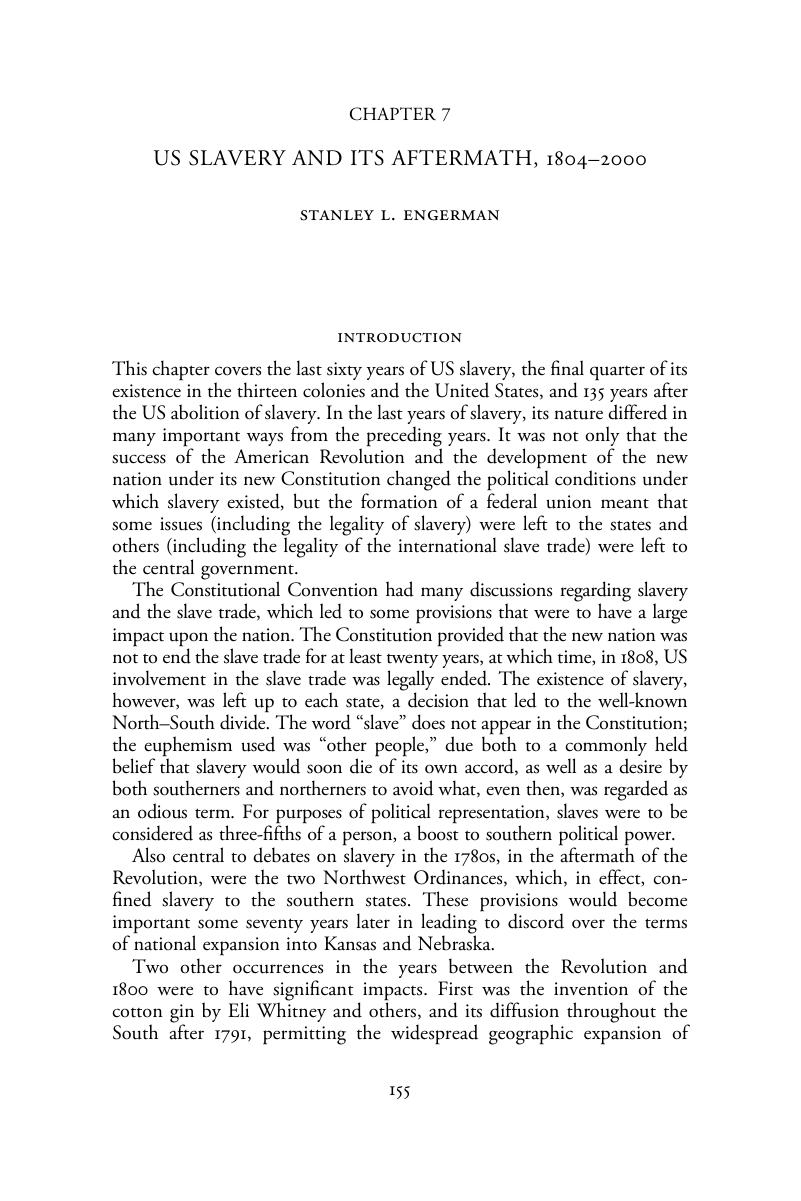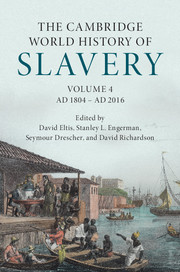Book contents
- The Cambridge World History of SlaveryVolume 4: AD 1804–AD 2016
- The Cambridge World History of Slavery
- The Cambridge World History of Slavery
- Copyright page
- Contents
- Maps
- Figures
- Tables
- Contributors
- Series Editors’ Introduction
- Part I Overview
- Part II Slavery
- Chapter 4 The non-hispanic west indies
- Chapter 5 Slavery in Cuba and Puerto Rico, 1804 to Abolition
- Chapter 6 Slavery in Nineteenth-Century Brazil
- Chapter 7 US Slavery and Its Aftermath, 1804–2000
- Chapter 8 Slavery in Africa, 1804–1936
- Chapter 9 Ottoman Slavery and Abolition in the Nineteenth Century
- Chapter 10 Slavery and Bondage in the Indian Ocean World, Nineteenth and Twentieth Centuries
- Chapter 11 Slavery in India
- Chapter 12 Slave Resistance
- Chapter 13 Black Cultural Production in the Nineteenth Century
- Part III Abolition
- Part IV Aftermath
- Index
- References
Chapter 7 - US Slavery and Its Aftermath, 1804–2000
from Part II - Slavery
Published online by Cambridge University Press: 20 April 2017
- The Cambridge World History of SlaveryVolume 4: AD 1804–AD 2016
- The Cambridge World History of Slavery
- The Cambridge World History of Slavery
- Copyright page
- Contents
- Maps
- Figures
- Tables
- Contributors
- Series Editors’ Introduction
- Part I Overview
- Part II Slavery
- Chapter 4 The non-hispanic west indies
- Chapter 5 Slavery in Cuba and Puerto Rico, 1804 to Abolition
- Chapter 6 Slavery in Nineteenth-Century Brazil
- Chapter 7 US Slavery and Its Aftermath, 1804–2000
- Chapter 8 Slavery in Africa, 1804–1936
- Chapter 9 Ottoman Slavery and Abolition in the Nineteenth Century
- Chapter 10 Slavery and Bondage in the Indian Ocean World, Nineteenth and Twentieth Centuries
- Chapter 11 Slavery in India
- Chapter 12 Slave Resistance
- Chapter 13 Black Cultural Production in the Nineteenth Century
- Part III Abolition
- Part IV Aftermath
- Index
- References
Summary

- Type
- Chapter
- Information
- The Cambridge World History of Slavery , pp. 155 - 173Publisher: Cambridge University PressPrint publication year: 2017
References
A Guide to Further Reading
- 1
- Cited by



